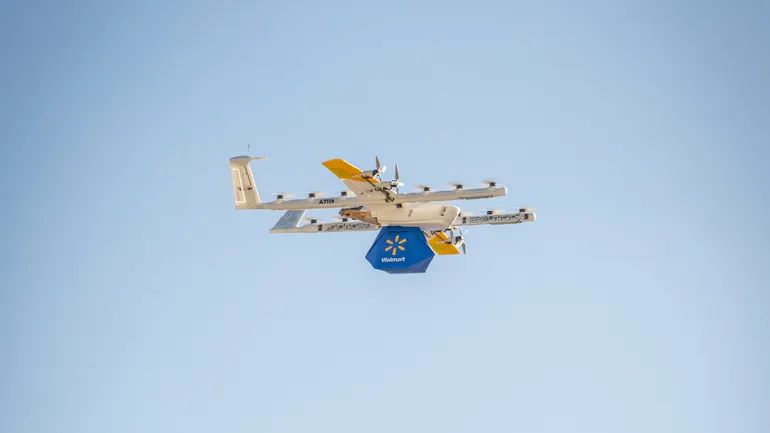
This sound is produced automatically. Please let us know if you have feedback.
The Trump administration has offered a major repairs on how to approve and regulate a longer drone operations, which industry stakeholders said could reinforce the survival of logistics services using the technology.
Currently, the Federal Air Transportation Department helps the operators to use unmanned aircraft beyond the vision line, exemption or exemptions, which helps delivery providers to reach more end customers. The proposal is aimed at eliminating this process and instead a simpler path for operators to provide supervisory approval.
Regulatory restrictions are among the obstacles that drone operators are moving in recent years because they are seeking to expand their last mile delivery capabilities. Transportation secretary, Sean Duffy, said at a press conference on August 5 that changing the law to strengthen the use of drones in US industries, including logistics, while potentially restricts road congestion and fuel propagation.
“This will be the way people and products move in our air space,” Duffy said. “So you may change the way you get your Amazon package. You may make a cup of starbucks coffee from a drone. How to get your products will change fundamentally.”
Industry stakeholders have supported the proposed law. “If it is finalized, it will make it possible for unmanned aircraft plans to make logistics, agriculture, energy and more,” said the commercial drone. “The law opens the next generation of services,” Benjamin Berlin, Benjamin Berlin, told LinkedIn, which is tied to unmanned aircraft operations.
If the AS-IS is finalized, the law will create two types of licenses for drones to move from the visual line of vision of a pilot or observer.
A license is an operational license episode 108. The permits make the maximum weight of a 55 -pound drone and a maximum fleet size of 100 aircraft. Operators can also fly over areas with population density, as “Category 3” or lower, which includes suburban delivery locations, according to the offer.
The agency said in a proposal: “FAA predicts that the owners of the package will deliver most of their delivery in housing development and areas with a family home.”
FAA said it predicts that many of the closed delivery operations currently carried out in part 107 will change to the authorized operations by law. Episode 107 now allows drones less than £ 55 to commercial operations.
Another type of license is an operational certificate of episode 108. Under the license, delivered drones can weigh up to 110 pounds and operate in all groups of population density, including housing for several families and important downtown locations. However, compared to a license, receiving a certificate requires a more careful FAA and heavier monitoring in an agency fact sheet.
General comments on this offer can be submitted by October 6 in federal registration.
“We will work seriously over the next few weeks to present our views and feedback as part of the decision -making process,” said Lisa Elman, CEO of the Dufficon Press Conference. “We hope that the final law will accelerate the expansion of unmanned aircraft operations throughout the United States, while increasing the safety and transparency of the national air space.”
Editor’s note: This story was first published in our weekly logistics newsletter. Register here
